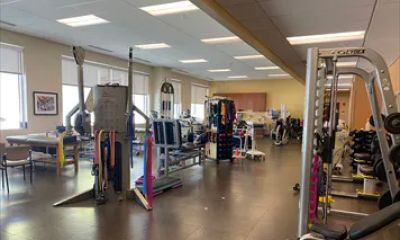- #understanding-hypertension - Understanding hypertension and its impact on health
- #herbs-for-hypertension - Best herbs for managing hypertension naturally
- #lifestyle-changes-hypertension - Lifestyle changes to lower blood pressure
- #success-stories-hypertension - Real-life success stories of managing hypertension naturally
- #professional-help-hypertension - When to seek professional help for high blood pressure
1. Understanding Hypertension and Its Impact on Health
Hypertension, also known as high blood pressure, is a common yet serious condition that affects millions of people worldwide. It occurs when the force of blood against the walls of your arteries is consistently too high, leading to various health problems, including heart disease, stroke, and kidney damage.
While medication is often prescribed to manage hypertension, many people are turning to natural remedies to help control their blood pressure. By incorporating specific herbs and making lifestyle changes, you can manage hypertension in a holistic way and improve your overall heart health.

2. Best Herbs for Managing Hypertension Naturally
Nature offers many herbs with the potential to help lower blood pressure. These herbs work by improving blood circulation, relaxing blood vessels, and reducing stress. Here are some of the most effective herbs for managing hypertension:
2.1 Garlic
Garlic has been shown to have powerful heart-healthy benefits. It can help reduce blood pressure by promoting relaxation in blood vessels and improving blood circulation. Consuming raw garlic or garlic supplements regularly can help lower systolic and diastolic blood pressure.
2.2 Hawthorn
Hawthorn is a popular herb in traditional medicine for heart health. It is known to improve blood flow, reduce cholesterol, and help regulate blood pressure. It has been used for centuries to treat various heart conditions, and scientific studies have supported its effectiveness in managing hypertension.
2.3 Hibiscus
Hibiscus tea has shown promise in reducing blood pressure levels. It contains antioxidants and compounds that help dilate blood vessels, reducing hypertension. Drinking hibiscus tea regularly can lower both systolic and diastolic blood pressure levels in people with mild hypertension.
2.4 Ginger
Ginger is a potent anti-inflammatory herb that can help lower blood pressure. It has been found to improve circulation and lower cholesterol levels, both of which contribute to reducing hypertension. You can incorporate ginger into your diet by adding it to meals, smoothies, or tea.
3. Lifestyle Changes to Lower Blood Pressure
While herbs can play a significant role in managing hypertension, lifestyle changes are equally important. Here are some key adjustments you can make to naturally reduce high blood pressure:
3.1 Diet Modifications
One of the most important lifestyle changes is adjusting your diet. Eating a heart-healthy diet that is rich in fruits, vegetables, whole grains, and lean proteins can help reduce blood pressure. The DASH (Dietary Approaches to Stop Hypertension) diet, which emphasizes low-sodium foods and nutrient-rich options, has been proven effective in managing hypertension.
3.2 Regular Exercise
Exercise is crucial for heart health. Engaging in regular physical activity, such as brisk walking, swimming, or cycling, can lower blood pressure by strengthening the heart and improving circulation. Aim for at least 30 minutes of moderate exercise most days of the week to help keep hypertension at bay.
3.3 Stress Management
Chronic stress is a significant contributor to high blood pressure. Learning how to manage stress through techniques such as deep breathing, meditation, yoga, or spending time outdoors can help reduce blood pressure. Finding time to relax and unwind is essential for overall well-being.
3.4 Reduce Alcohol and Caffeine Consumption
Excessive alcohol and caffeine intake can increase blood pressure. Reducing or eliminating these substances from your diet can have a significant impact on lowering your blood pressure over time. Moderation is key when it comes to consuming these stimulants.
4. Real-Life Success Stories of Managing Hypertension Naturally
Many people have successfully managed their hypertension through natural remedies and lifestyle changes. Take, for example, Sarah, a 55-year-old woman who struggled with high blood pressure for years. After incorporating garlic supplements, practicing yoga, and following the DASH diet, Sarah was able to reduce her blood pressure significantly and reduce her reliance on medication.
Similarly, John, a 60-year-old man, managed to lower his hypertension by regularly drinking hibiscus tea and walking every morning. His blood pressure levels are now within a healthy range, and he feels better than ever. Real-life stories like Sarah’s and John’s show that it’s possible to manage hypertension naturally with the right combination of herbs and lifestyle changes.
5. When to Seek Professional Help for High Blood Pressure
While herbs and lifestyle changes can be effective, it’s essential to seek professional help if your hypertension is not improving or if you experience any complications. A healthcare provider can help monitor your blood pressure and recommend appropriate treatments, including prescription medications if necessary. If you are considering natural remedies, it’s always a good idea to consult with a healthcare professional to ensure they are safe for your specific condition.
If you are looking for expert advice and support on managing hypertension, visit HeartCare Hub for personalized recommendations, services, and resources to help you maintain a healthy heart.






















NovaCare Rehabilitation in partnership with OhioHealth - Pickerington - Refugee Road
novacare rehabilitation in partnership with ohiohealth - hilliard - west
1010 Refugee Rd Suite 210, Pickerington, OH 43147, USA